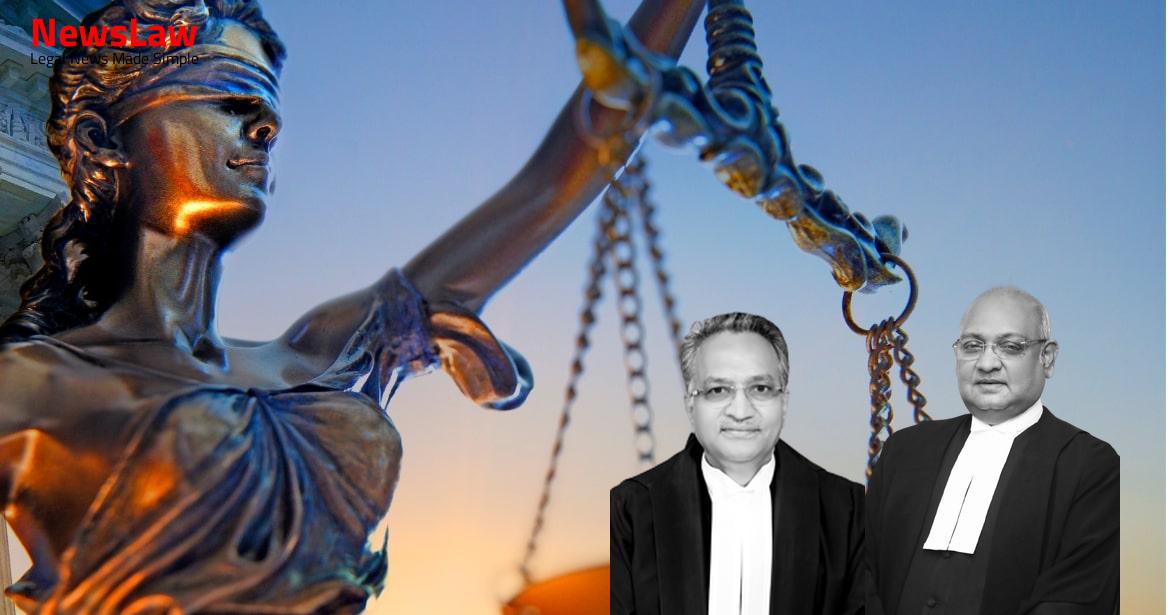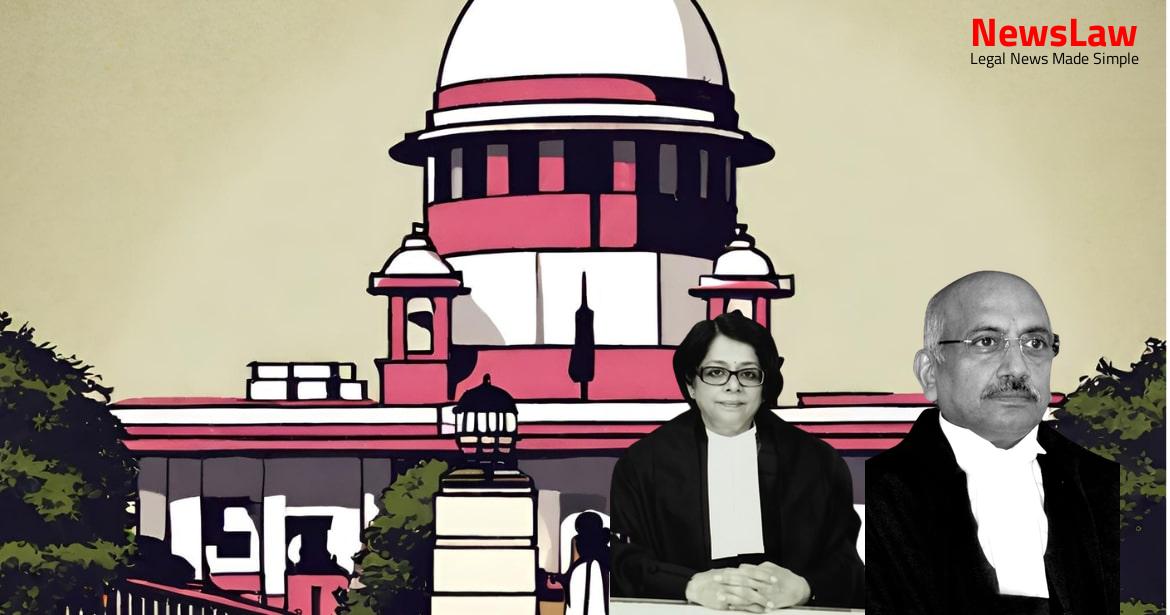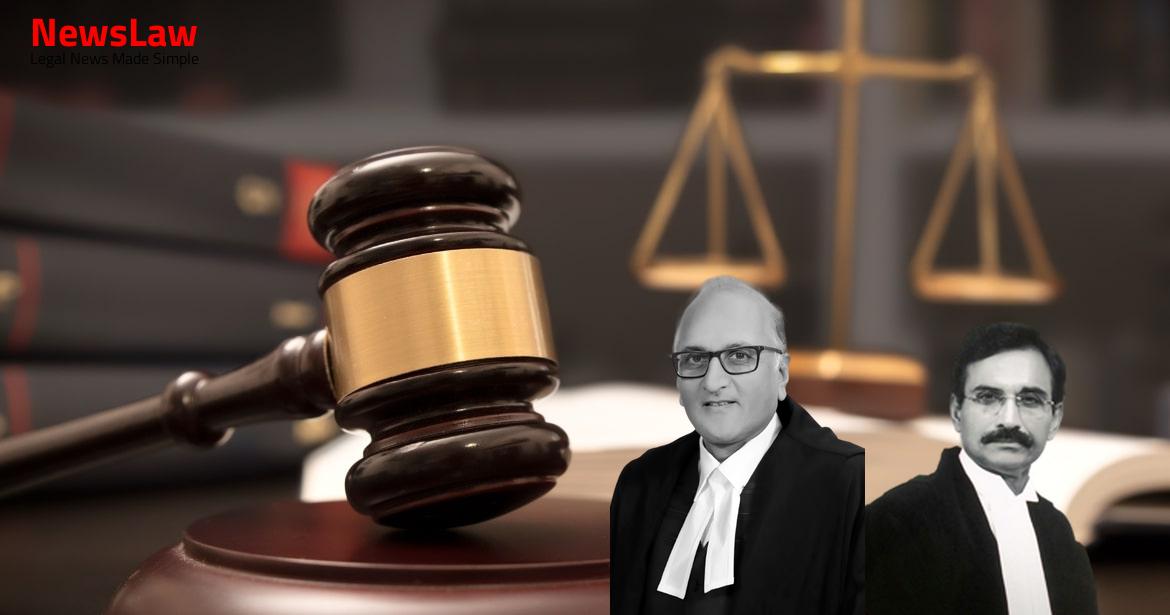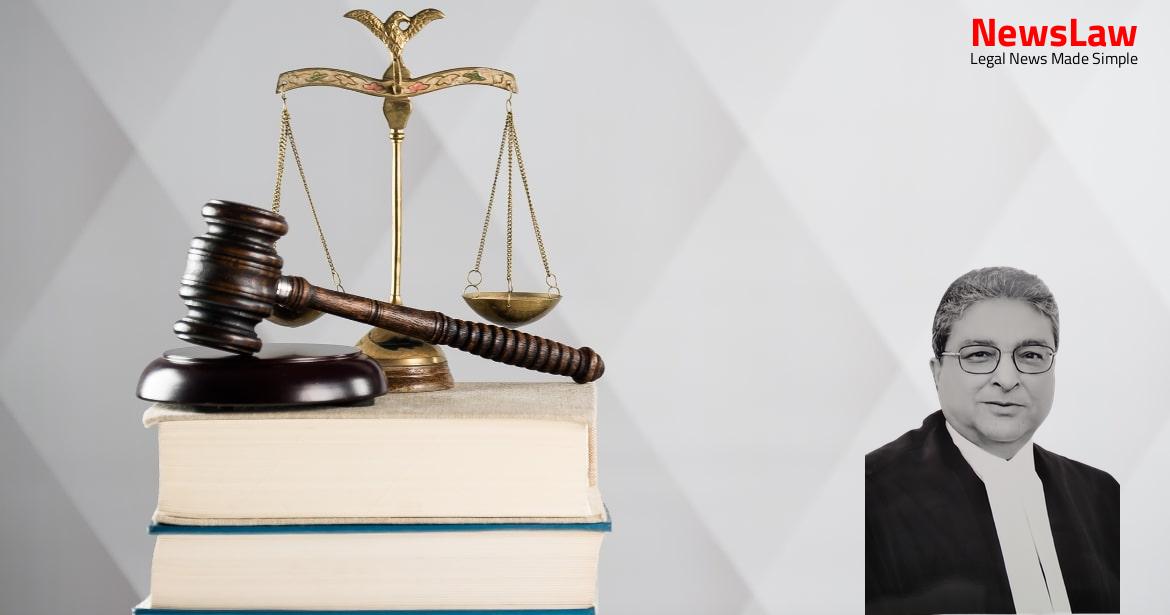Explore a detailed legal analysis of a case concerning the assessment of cash credits under the Income Tax Act. The court’s judgment highlights the burden placed on the assessee to explain such credits and the importance of legal clarity in interpreting tax laws. Dive into the nuances of how courts navigate conflicting actions by tax authorities regarding the rejection and reliance on accounting books for assessments.
Facts
- Assessee failed to provide evidence or explanation regarding the income of creditors and the source of income.
- Credits of Rs. 2,26,000 shown in the names of 15 persons deemed unexplained under Section 68 and added to the declared income of the assessee.
- Various additions and disallowed deductions led to a total taxable income of Rs. 3,48,700 for assessment year 1998-99.
- Assessment was made by the Officer with necessary forms issued and a separate notice for penalty under Section 272(1)(c) was recommended.
- The ITAT partly allowed the appeal concerning the second addition of Rs. 2,26,000, and the High Court upheld the ITAT’s decision.
- The CIT(A) partly allowed the appeal, but the order regarding the second addition of Rs. 2,26,000 was upheld.
- The appellant/assessee’s appeal before the High Court and ITAT regarding the second addition of Rs. 2,26,000 was unsuccessful.
- The High Court opined that the credits shown were bogus entries.
- The credits were added to the appellant’s income.
- The appeal was dismissed for lacking merit.
Also Read: Land Acquisition Challenges for Integrated Infrastructure Project
Issue
- The substantial question of law raised in the appeal was whether the claim for the purchase of goods by the assessee could be considered under Section 68 of the Income Tax Act as a cash credit.
- The crux of the issue was whether the burden could be placed on the assessee to explain that the purchase price does not constitute income from disclosed sources.
- The admission of the appeal on this substantial question of law indicates its significance in the case and the need for a legal clarification on the matter.
Also Read: Analysis of Legal Issues in Property Dispute Case
Arguments
- Appellant/assessee argues against the Officer’s approach of relying on the same books of account for making additions after the assessment under Section 143(3) of the 1961 Act.
- Cites case laws to support the argument that rejected books of account cannot be used for subsequent additions.
- Appellant/assessee emphasizes the rejection of books of account and the reliance on the same books for making additions were contradictory actions by the Officer.
- Respondent counters by stating that the assessment order did not reject the books of accounts under Section 145(3) but was made under Section 144 for ‘best judgment assessment.’
- Quoted part of the judgment highlights the Assessing Officer’s findings on the lack of proof for claimed purchases from an unregistered dealer.
- Overall, the argument revolves around the conflicting actions of rejecting and then relying on the same books of account for assessment.
- The finding of fact recorded by the Officer is unexceptionable.
- The respondent maintains necessary vouchers while determining gross profits.
- The respondent argues that the cash credits finding does not raise any substantial question of law.
- Assessment order does not reject books of accounts entirely, only the part related to assessing gross profit due to lack of day to day stock registers.
- The amount under “Credits” in the Balance Sheet is considered as “Cash Credits” under Section 68 of the 1961 Act.
- Opportunities were given to the appellant to prove the authenticity of entries in question, but no evidence/explanation was provided.
Also Read: Legal Analysis on Levy of Customs Duty on Non-Excisable Goods Sold in Domestic Tariff Area by an EOU
Analysis
- The appellant/assessee provided explanations and evidence in the penalty proceedings to substantiate the genuineness of purchases made from unregistered dealers.
- Statements of 12 unregistered dealers were recorded, and their identities were established by the Assessing Officer.
- The explanation given by the appellant regarding purchases from unregistered dealers was supported by affidavits and statements produced during the remand report.
- The assessment order and findings upheld in appeals indicated that the appellant had failed to prove the correctness of the transactions, leading to the assumption of bogus entries.
- The appellate authority concluded that there was no concealment of income or furnishing of inaccurate particulars by the appellant for the relevant assessment year.
- Criminal proceedings against the appellant were dropped after the appellate authority’s decision, and the penalty amount was refunded by the Department.
- The materials on record suggest that unregistered dealers did sell marble slabs to the appellant/assessee on credit, as claimed, supported by their statements and identities.
- When an assessee furnishes a revised return after the issue of an intimation or grant of refund, necessary adjustments will be made on the basis of the revised return.
- Any excess amount payable by the assessee or refund due to the assessee will be managed accordingly.
- If there is any variation in the income or loss of an association or body of individuals, adjustments will be made as necessary, and intimation will be sent to the assessee.
- In cases where income is increased or loss is reduced, additional income tax may be levied, and certain deductions or reliefs claimed in the return may be disallowed.
- The Assessing Officer may serve a notice to the assessee to ensure accurate reporting of income and tax payment.
- Upon assessment by the Assessing Officer, the total income or loss will be determined, and the sum payable will be calculated.
- Tax or interest paid by the assessee will be deemed to be paid towards the regular assessment, and any refund exceeding the amount refundable will be considered as tax payable by the assessee.
- The provisions of this section as they stood before the amendment by the Direct Tax Laws (Amendment) Act, 1987, will apply to certain assessments.
- The appellate authority accepted the explanation provided by the appellant/assessee.
- The appellate authority found no concealment of income or furnishing of inaccurate particulars of income for the assessment year 1998-1999.
- Considering this, the addition of Rs.2,26,000/- cannot be justified or maintained.
Decision
- The appeal is allowed based on the specific count mentioned in the judgment, making further discussion on other issues unnecessary.
- The addition of Rs.2,26,000/- under Section 68 of the 1961 Act for the assessment year 1998-1999 is set aside.
- All pending interlocutory applications are disposed of.
- No costs are imposed.
- The assessment order dated 30.11.2000 remains unchanged except for the specific modification mentioned.
Case Title: BASIR AHMED SISODIA Vs. THE INCOME TAX OFFICER (2020 INSC 352)
Case Number: C.A. No.-006110-006110 / 2009



